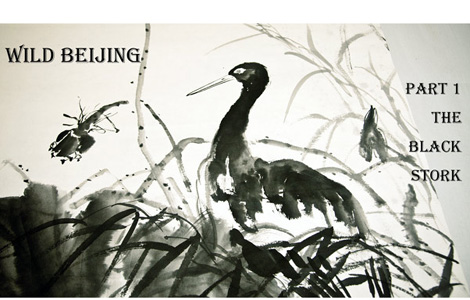Stringent US checks pose image problem for Thailand
Updated: 2013-06-28 16:36
(www.asianewsnet.net/The Nation)
|
||||||||
A foreign news agency recently reported that the US Food and Drug Administration (FDA) has ordered stringent inspection of Thai rice imports in every container after a report that Thai rice had been put through fumigation that might harm consumers' health.
A Thai rice exporter said that the US alert is one of the biggest issues for rice trading in the past 20-30 years as it could affect Thai rice export growth and confidence among consumers.
"The US has never inspected Thai rice in every container. Its measure has affected confidence in Thai rice quality. The Thai government needs to clarify these doubts clearly to the public," said the source.
The US FDA has ordered every port such as in New York and Chicago to confine Thai rice for random inspection. If the agency finds Thai rice with problems such as contamination, fungus, mold, or over-fumigation five times, the importer would be ordered to refuse Thai rice from exporters.
The source said that such stringent inspection has created concern among American importers as well as Thai rice exporters. Importers could easily turn to order rice from other rice export countries such as Vietnam and Cambodia.
Chookiat Ophaswongse, honorary president to the Thai Rice Exporters Association, said that normally there is hardly any contamination found in Thai rice shipments overseas. However, the stringent measure by the US, one of the major rice importers, could destroy the image of Thai rice.
Meanwhile, Thai farmers would continue to suffer from the government's decision to lower the rice pledging price from 15,000 baht per tonne to 12,000 baht per tonne as the National Rice Policy Committee (NRPC) meeting, scheduled to reconsider the matter, would be postponed following the likely change of commerce minister.
Vatchari Vimooktayon, permanent secretary to the ministry, said yesterday that the Cabinet reshuffle, including the commerce minister, who chairs the NRPC board, would delay the NRPC's reconsideration of the pledging price.
The NRPC, chaired by Commerce Minister Boonsong Teriyapirom, was scheduled to meet today. The meeting has been rescheduled for June 30.
A group of farmers have urgently called on the government to reconsider its decision to lower the pledging price immediately.
As a result, the pledging price would be at 12, 000 baht a tonne. The new pledging price would be effective on June 30.
PM's Office Minister Niwat-Thamrong Bunsongphaisal is likely to replace Boonsong as the new commerce minister. Retired permanent secretary at the Commerce Ministry Yanyong Phuangrach would be deputy commerce minister.
Meanwhile, the Commerce Ministry's special taskforce, with cooperation from the Crime Suppression Division, acting against corruption and misconduct in the public sphere, undertook inspection of 2,000 warehouses nationwide and found rice missing from the government's stocks in many provinces. The provinces where stocks were missing were Chainart, Chiang Rai, Songkhla, and Phetchabun.
Vutthichai Duangratana, the ministry's inspector-general, said that the inspection team found no missing rice in Ayutthaya. However, if the ministry found missing stocks or unscrupulous practice, the ministry would urgently send a team for closer inspection and take the case to the police and the court.
Meanwhile, nationwide inspections have detected no significant irregularities in the stockpile from the rice-pledging scheme, according to the government.
A recent survey by Abac Poll showed that most people believe the rice-pledging scheme is mired in corruption. Even though rice mills and warehouses participating in the pledging scheme knew about the inspections in advance, many clearly could not ensure the right amount of rice.
At some places, the quantity of rice was thousands of tonnes lower than the registered one with their owners claiming that rains had damaged some of their paddies while they were being dried in the open.
The government carried out almost simultaneous inspections at about 2,100 rice mills and warehouses yesterday in the wake of growing public doubts that some entrepreneurs had secretly sold stockpiles or inflated the quantity of rice participating in the rice-pledging scheme.
Natthawut yesterday insisted that the inspections found no signs of corruption or embezzlement. He ruled out the possibility of rice millers using the same rice bulk to show to officials during inspections.
Officials from various agencies as well as police helped with yesterday's inspections.
In Nakhon Sawan, 246 rice mills and warehouses were inspected. Relevant authorities, however, could provide just a little over 150 officials for the inspections and many policemen clearly did not know how to calculate the amount of rice. In the end, they just photographed piles of rice sacks.
In Phetchabun, officials from the Marketing Organisation for Farmers led the inspections at many places. They lodged at least one embezzlement complaint against a rice miller with the Nong Phai Police Station.
According to the complaint, 4,000 tonnes of rice went missing from the Kaset Phon Charoen Rice Mill.
US$1 = 31 baht
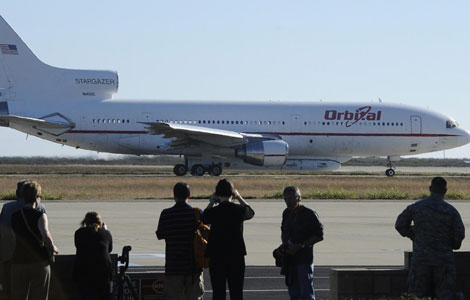
 NASA telescope to probe solar mystery
NASA telescope to probe solar mystery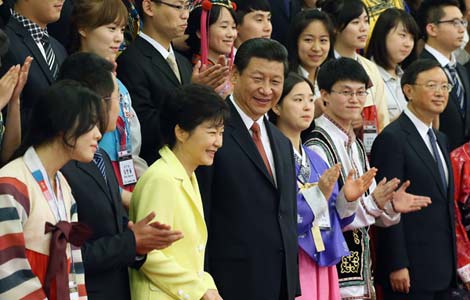
 Visit aids 'trust-building process'
Visit aids 'trust-building process'
 King of Pop returns
King of Pop returns
 Crowds cheer Court decision on gay marriage
Crowds cheer Court decision on gay marriage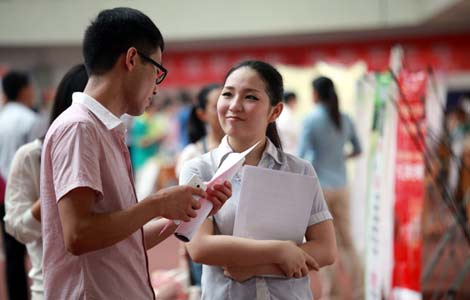
 Hiring index signals further job weakness
Hiring index signals further job weakness
 Dance becomes popular stress relief
Dance becomes popular stress relief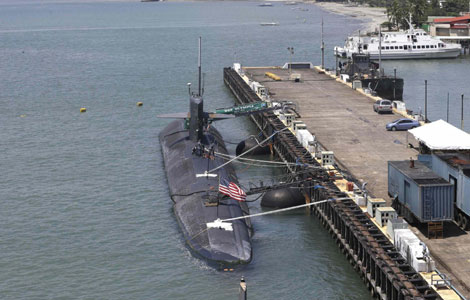
 Philippine, US start Naval exercise in S China Sea
Philippine, US start Naval exercise in S China Sea
 Supreme Court gay rights ruling celebrated across US
Supreme Court gay rights ruling celebrated across US
Most Viewed
Editor's Picks

|

|

|

|

|

|
Today's Top News
Senate OKs immigration reform; hurdles remain
Snowden could request asylum in Russia: official
US collects Internet data on citizens
Boston bombing suspect accused in 4 deaths
816 elected in provincial leadership reshuffle
US adds to DPRK sanctions list
Chinese pros put trust in blogs
More Americans see Snowden as patriot: Poll
US Weekly

|

|
